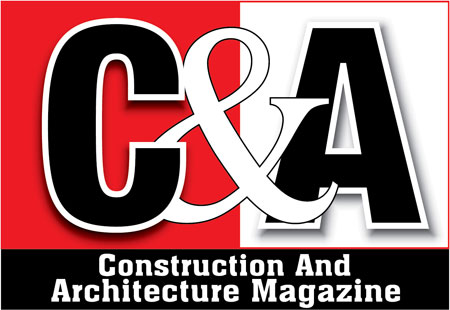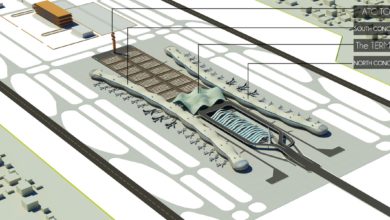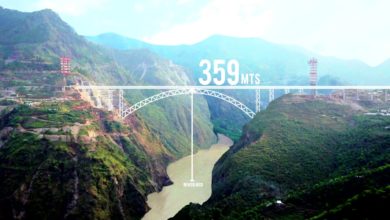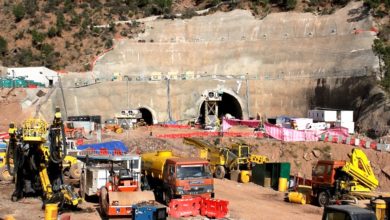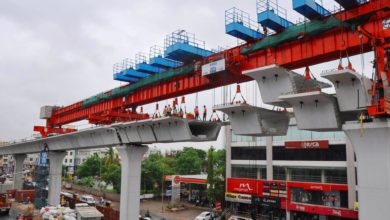Escalating Productivity: Major Executions…!

What are the current market conditions that you are witnessing in the industry and how have been the company’s performance so far?
SPML Infra Limited has been developing sustainable infrastructure for the last forty years with impeccable record. With rich experience of executing over 600 infrastructure projects in power, water, irrigation and sanitation sectors, SPML Infra has individual capability in executing large scale water and power projects.
In the smart city development projects, SPML Infra is already executing a smart city project as Vikram Udyogpuri in Ujjain, Madhya Pradesh being developed as a global manufacturing and investment destination under the Delhi Mumbai Industrial Corridor (DMIC) scheme. We have also received a new order worth INR 1,036 million related to Ludhiana Smart City development for construction of drinking water, sewerage and storm water drainage network. We are executing about three dozen water, power and sanitation projects currently with particularly good progress and also expecting more orders in water and power segments as we are bidding strategically giving the strength of our experience in developing strong and sustainable infrastructure for water supply and power T&D projects.
Please brief us on some of the significant projects that have been commissioned or in the advanced stages of completion?
SPML Infra has completed and commissioned several water and power T&D projects in recent past. In water segment, it has completed the Phase 2 of Saurashtra Narmada Avtaran Irrigation (SAUNI Yojana) which envisages providing drinking water facilities to 39 million people across 132 towns and 11,456 villages along with provision of water for irrigation for 1.8 million hectare land in Gujarat and it was inaugurated by Hon’ble Prime Minister on 4th March 2019. The 24X7 urban water supply projects in Delhi and 6 cities in Karnataka have developed helping 1.5 million people with clean drinking water facilities. The Gagreen Water Supply project aims to provide drinking water facilities to 315 villages and 28 dhanies of Jhalawar district in Rajasthan. The non-revenue water (NRW) project in Bengaluru has helped in saving of around 40 million litres of drinking water per day by reducing NRW significantly from 56 percent to 27 percent.
In power segment, SPML Infra has commissioned the modern and technologically advanced 220 kV Gas Insulated Substation (GIS) along with 220 kV DC transmission line in Alipurduar, West Bengal. The power supply augmentation project in Ratu, Jharkhand with 220 kV (2×150+2×50 MVA) Grid Sub-Station is nearing completion. The project envisages augmenting uninterrupted power distribution and providing better quality power supply to the residents of Ranchi.
Technology has transitioned the Infrastructure sector. Given that, please tell us about some of the latest products and technologies used in the success of complex water distribution and sewerage management projects and the role of O&M vertical?
The design engineering for infra projects including for water and wastewater projects has been revolutionized with the support of technology from a flat design to 3-dimensional engineering design that has significantly improved the productivity. Another significant technology used is Project Tracker that uses smartphones to provide real time information between execution teams and the management to help in taking decisions based on real time development and swift remedial steps for areas that needs urgent attention. The growing use of drones in monitoring the progress of projects from remote locations, managing operation & maintenance of existing infrastructure, handling difficult tasks of material deliveries in hazardous areas and conducting asset inventories are another technology contribution. The advanced technology for material transportation to project sites focuses on intelligent logistics, infrastructure, and mobility and makes project execution more efficient. SPML Infra has been using innovative technologies for execution of large and sophisticated projects with speed and perfection to deliver projects on scheduled time. SPML Infra has also developed an Integrated Management Information System (IMIS) for smart management of water utilities. A powerful enterprise management system designed specifically as per Indian requirements and working conditions to meet day to day operations and maintenance of water utilities to develop and manage smart water supply system. It provides technologically advance services which include GIS, Network Analysis, Hydraulic Modeling, Demand Management, Customer Relationship, Financial Management, Water Loss Reduction thru NRW & UFW Management and complete Asset Management of the system.
How close or far are we from our global counterparts in terms of automation and mechanization?
In the past few decades mechanization has picked up pace followed by automation in production, service, construction and other industries in India as the demands for high productivity increased. Along with productivity it also gives importance to safety and quality. As compared to global trends, the mechanization and automation implementation in construction industry in India started lately. It has now picked up as faster and precise execution with quality and sustainability has become vital in project implementation. The mechanization and automation technologies are being comprehensively used in all stages of project execution from designing process through the use of CAD (Computer Aided Design), scheduling, and estimating and project management with software to use fully automated machines for on-site activities. The major benefit of mechanization and automation is that it helps increasing the productivity and provides better quality with higher accuracy than the earlier manual processes. With the speed and investment being done for automation and mechanization by the Indian companies, we are not too far from our global counterparts and it is now matter of time that we will be able to compete with them in almost all segment of infrastructure development.
What are the challenges in the Infrastructure industry at present, primarily in your core business segment? What can be the vital steps to put the sector in the fast lane?
The business scenario in India has considerably improved in the last few years as the government continued with its reform agenda and easing of policies. Some of the major challenges commonly faced by the developers are; inordinate delays in land acquisition, regulatory bottlenecks, statutory clearances (particularly environment and forest clearance), shortage of skilled manpower, timely availability of materials, escalating cost of raw materials, financing issues including difficulty in getting long-term and working capital funds among others. Availability of competent project management personnel is also an area of concern.
There are challenges for which solutions have to be found for making infrastructure sector more attractive and successful:
- Strong political support at every level of central, state and local governments.
- Policies and regulations have to be improvised or developed to make any project attractive to the private sector.
- Financial institutions has to prepare adequate instruments and must have the capacity to meet the requirement of long-term equity needed for infrastructure projects with easy funding mechanism.
- Reasonable and viable projects cannot turn bad and terminated. Comprehensive feasibility studies are a must before any coercive action are initiated.
- Private sector has to develop its capacities in order to fully meet the challenges of investing in large number of projects which can be diversified.
- Stressed asset resolution and arbitration of infrastructure projects must be resolved with broader perspective.
- Alternative sources of financing should be identified and effected, among others…
